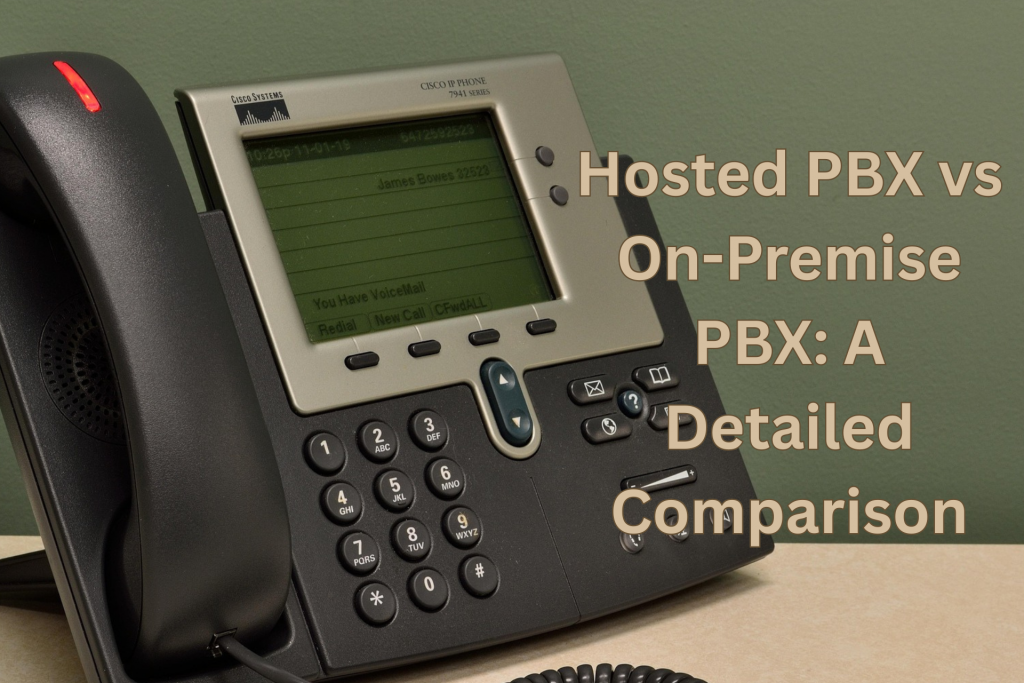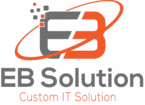Choosing an appropriate phone system is a major concern for any business that should be carefully looked into. This is because communication is key to productivity, as well as cohesiveness within the organization. In this regard, the type of PBX (Private Branch Exchange) that you use might make or break efficiency. There are two leading alternatives nowadays. This includes hosted PBX and On-Premise PBX. Although both can call and receive inbound and outbound calls, their functionality and cost can differ greatly. Let us take a look at each one to help guide you in making the right call for your business.

Hosted PBX vs. On-Premise PBX: A Detailed Comparison
Understanding PBX
Before we tackle what is On-Premise and hosted PBX, let us first understand what PBX is in the first place. PBX is short for Private Branch Exchange. This is when one telephone and one telephone number branches out to different extensions that create a phone network system within an office or organization. Older generations can refer to this as the switchboard phone system, albeit automated instead of manual. Basically, a PBX bridges the internal phone lines and directs external calls. These systems traditionally reside in the office, under the management of IT teams (or switch-board operators for manual systems). However, current-day businesses have moved towards cloud-based services that minimize hardware installation and maintenance.
Hosted PBX vs. On-Premise PBX: Here’s How Each Works
Hosted PBX
This system operates via the cloud. Therefore, all the call routing and maintenance are handled by a service provider.
On-Premise PBX
On the other hand, an on-premise PBX is installed in your physical location. As such, the entire system is owned, operated, and maintained by you and your business.
How Hosted PBX Works
A hosted PBX runs entirely on the internet. Hence, a service provider takes care of calls, data, and user management remotely. It has unique advantages such as decreased initial setup cost as there are no servers or hardware installation needed. Moreover, it is scalable therefore you can add or remove lines quickly, as needed. Lastly, this system works even if you and your staff are not in the same location. Therefore, employees are allowed to access it anywhere as long as there is an internet connection. Given these unique features, hosted PBX systems are ideal for on-the-go, remote and hybrid teams. So, to speak, they are adjustable without the need for heavy maintenance.
How On-Premise PBX Works
Under an on-premise system, on the flip side, the equipment is installed in your office. Therefore, you and your team are in charge of all the technical issues, including software updates and troubleshooting. Although it seems taxing, it also has its own advantages. This includes full and direct control of the system, including configurations, security, and call quality. Moreover, although it can be expensive during the initial setup, it becomes less expensive in terms of subscription fees in the future. Lastly, it is more flexible when it comes to integrating with internal CRMs and other tools. Because this needs in-house maintenance, this model is appropriate when the companies with a well-established IT department. In the same vein, this works well for businesses with high data security requirements.
Comparing Costs
Cost is a significant factor in deciding which one to make a choice. For hosted PBX it is subscription-based in pricing and has very little upfront expenses as there is almost no hardware involved. The business owner can also choose from various monthly rates that are based on the number of users and functionality.
On-Premise PBX, on the other hand, costs a lot during the setup and installation process because of the hardware needed. In the same vein, budgets for repair and maintenance expenses are also expected. However, since there is no external support needed, there are no service charges associated with this to worry about.
Overall, hosted PBX can be ideal for small businesses as they are cheaper to set up and have predictable monthly payment plans. On the flip side, larger enterprises may find on-premise systems more cost-efficient in the long run, despite the large initial capital outlay.
Maintenance and Support
Hosted PBX takes away this burden from the business owner; therefore, it is more convenient. This is because the provider will be the one to handle updates, patches, and troubleshooting. This will remove the load from your IT department and guarantee high uptimes. Whereas, for On-Premise PBX, you or your in-house team handle repairs and upgrades. Therefore, this brings in responsibility as well as control of the system. In case of any outage, your business will be the one to restore service.
Reliability and Security
Reliability and security are crucial in communication systems. Hosted PBX systems rely on your internet connection. When the connection goes dead, so do your calls. Nevertheless, the best providers have integrated disaster recovery and redundancy plans. Contrary to this, On-Premise PBX operates independently of external internet issues but relies on your internal hardware and power. The security is up to you, which includes looking after firewalls, encryption, and backup.
Scalability and Flexibility
Expanding companies require systems that expand with them. Ergo, hosted PBX shines in scalability. This is because new users, locations, or features can be easily added without the need to make any physical changes. Additionally, the mobile applications and integrations with collaboration tools are frequently provided by providers. In contrast, On-Premise PBX is limited by hardware. Therefore, growing requires the purchase of new equipment or licenses, hence, it is more applicable in stable companies with known growth.
Which One Should You Choose?
The choice is based on size, budget, and control desires. It is recommended to go with hosted PBX if you want low upfront costs and approve long-distance or hybrid work. It also works best for people who like little maintenance and want everything automated. On-Premise PBX, however, may work better for organizations with or wants complete data and configuration control. Moreover, if you already have an internal IT team, then maintenance and repairs would not be too much of an issue. This is also ideal for people and companies who wish to blend with systems that are in place.
Here at EB Solution, we assist small and medium-sized companies with the business phone system, among other IT management services and support. If you are looking for the best VoIP system for your company, get in touch so we can help you get started.
